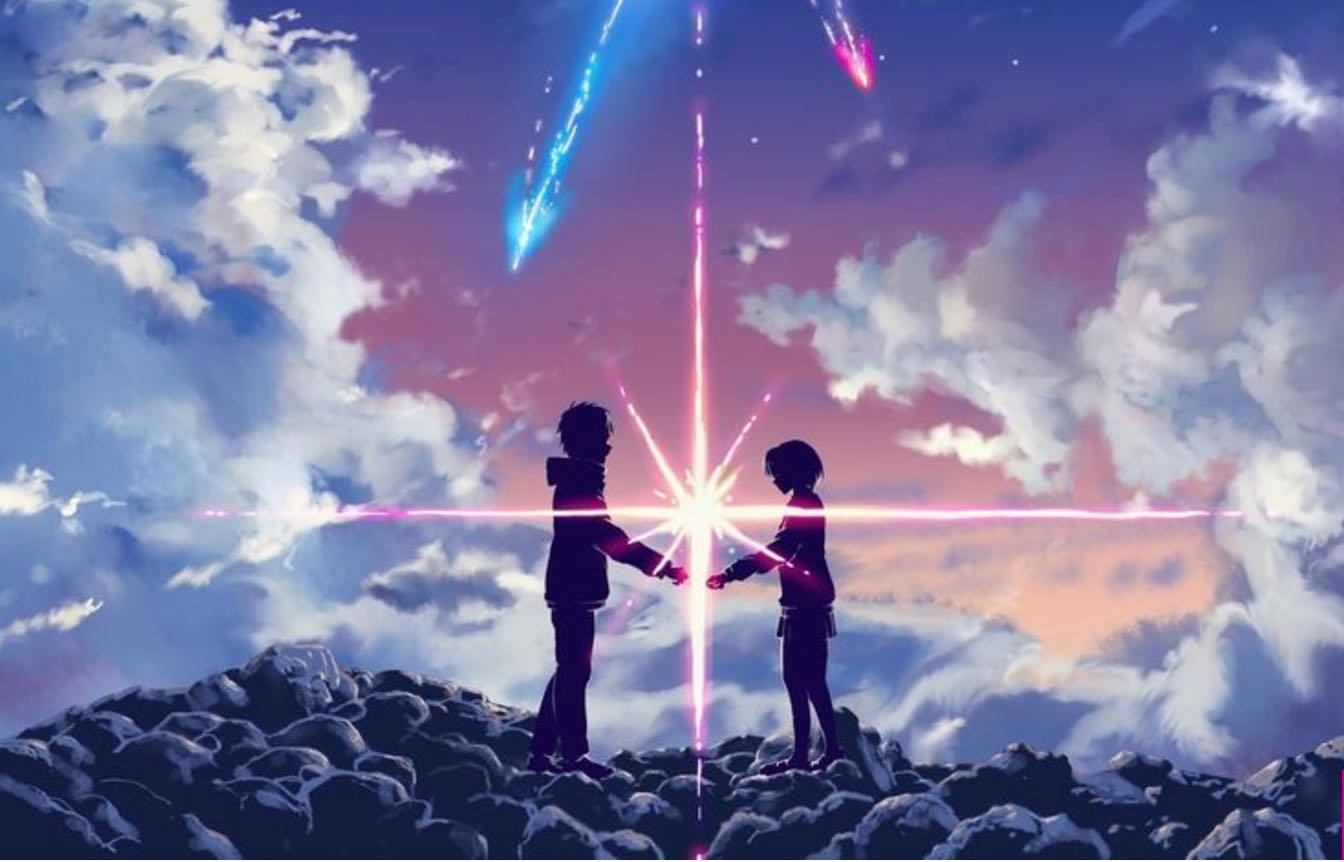The biggest anime film of all time comes to the US
This is an image from the 2017 movie "Your Name."
The plot of the new movie "Your Name" may initially sound more like a "Freaky Friday" spin-off than a Japanese anime film: A teenage boy in Tokyo swaps bodies with a teenage girl in the Japanese countryside, the two eventually fall in love, and the story builds from there.
But unlike "Freaky Friday," "Your Name" has garnered international acclaim. It's already the highest-grossing anime movie of all time, currently raking in over $330 million worldwide, and that's before hitting US theaters this week. Additionally, it has a near-perfect 97 percent score on Rotten Tomatoes.
It's so big that the director Makoto Shinkai said the popularity and hype around the film are "not healthy.”
“I don't think any more people should see it,” he said back in December 2016.
Susan Napier, a professor of Japanese studies at Tufts University and author of "Anime from Akira to Howl's Moving Castle: Experiencing Contemporary Japanese Animation," says anime speaks to the world without losing its Japanese character.
“Yes, it’s Japanese animation, but there are certain kinds of aesthetics and a kind of background and tradition that Japanese animation is coming from that’s quite different from Western animation, and I think it’s one reason why it’s so distinctive,” she says. “It doesn’t appeal to everybody, but the people it appeals to, they really, really love it because it’s speaking to something in them that they don’t get in Hollywood animation.”
Though it has roots in Japan, Napier says that anime has become a fable for the world.
“It has a kind of feel and emotional depth to it that is, you could say, very Japanese,” she says. “In particular, there’s a term from Japanese poetry and philosophy — ‘mono no aware’ or "the sadness of things." There’s a sense of the transience and the lyrical beauty of life that is beautiful precisely because things don’t last, and that’s very Japanese.”
She continues: “But at the same time, the things that anime talks about or expresses, and it does it more in-depth than, say, a Disney or regular Hollywood film would do, are things that everyone can relate to — love, loss, trauma and coming-of-age, all of these things that really appeal across a global audience.”
On the whole, Napier says that anime has been liberating because it allows her and others to enter into an alternative reality.
“I think animation in general and anime in particular [presents] really a kind of dreamlike otherworld that, at the same time, is logical and seamless once you walk into it,” she says. “I think that animation as a medium offers you a different kind of reality, and it’s very, very appealing and alluring.”
Because anime presents a magical, beautiful and whimsical view of reality, it can function as a therapeutic tool for fans.
“You can deal with difficult things at arm's length [when watching anime] in a more comfortable way than you would with a more realistic, live-action work,” Napier says. “I think this is why animation and fantasy and science fiction so often go together — they’re giving you reality, but it’s a little bit displaced, so it’s a little bit more comfortable to deal with your own difficult issues and reality by seeing them in this more fantastic, and often, more beautiful space.”
Many say that Makoto Shinkai is following in the footsteps of Hayao Miyazaki, one of Japan's greatest animation directors. Napier says that Miyazaki was able to build an incredibly immersive and elaborate emotional world with his films.
“It is a vision of a complex world that is both beautiful and terrifying and sublime and disturbing that young people can navigate, and I would say that’s also very true with Shinkai — they’re very different directors, but I think Shinkai can be seen as a kind of successor to Miyazaki in that he has the kind of quality of originality that Miyazaki has,” she says.
According to Napier, it seems that Shinkai has had such great success with “Your Name” because he has been able to capture the struggles many young adults face, particularly as it relates to loneliness, fear and insecurity that comes with the transition from adolescence to adulthood. Shinkai’s trepidation about the success of the film seems to stem from the Japanese cultural value of modesty, Napier argues.
“It must be a little bit shocking to have this kind of global reception,” she says. “I’m sure that the success can seem like a two-edged sword to someone who’s as thoughtful and as philosophical as he is.”
This story originally ran on The Takeaway.
